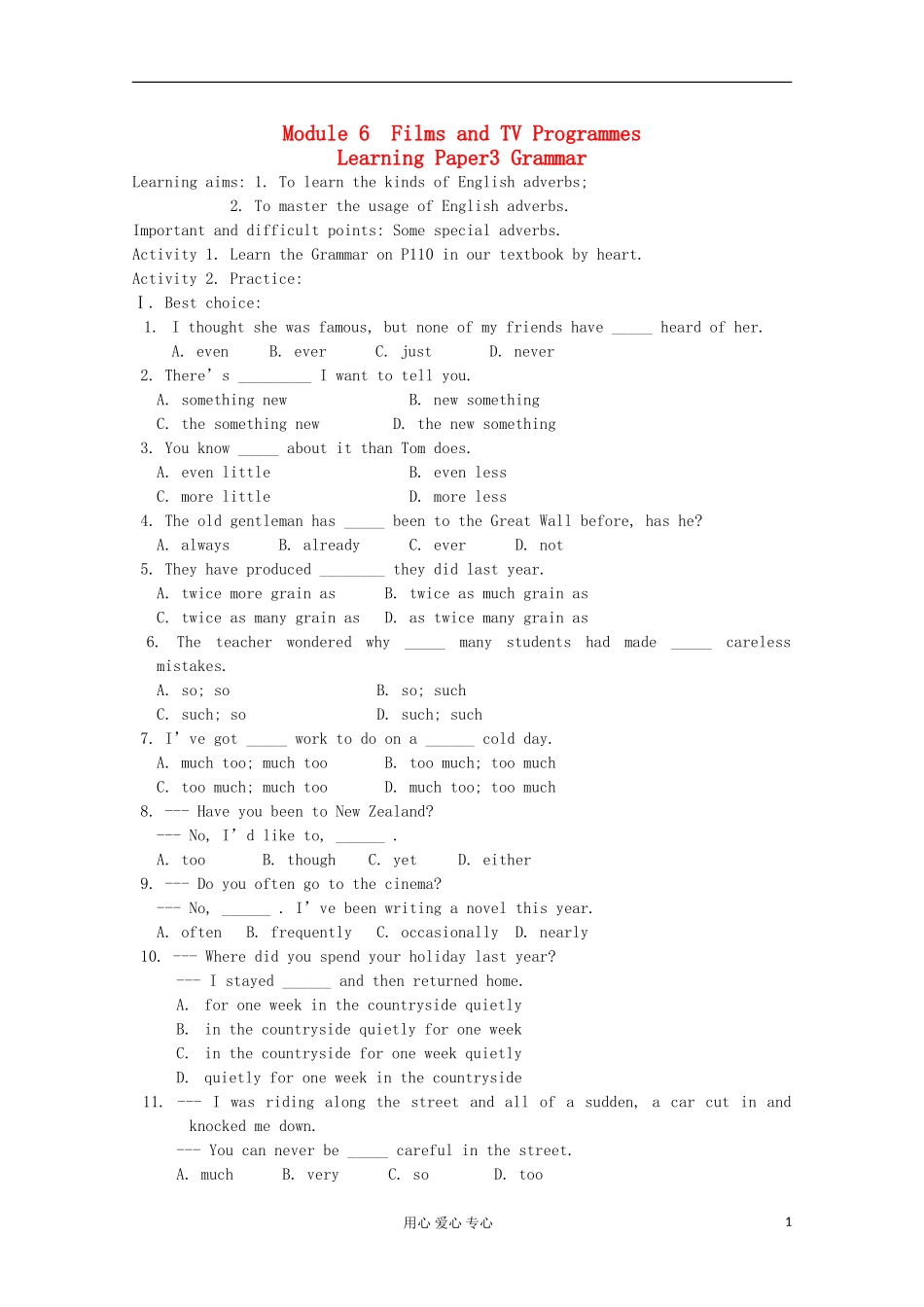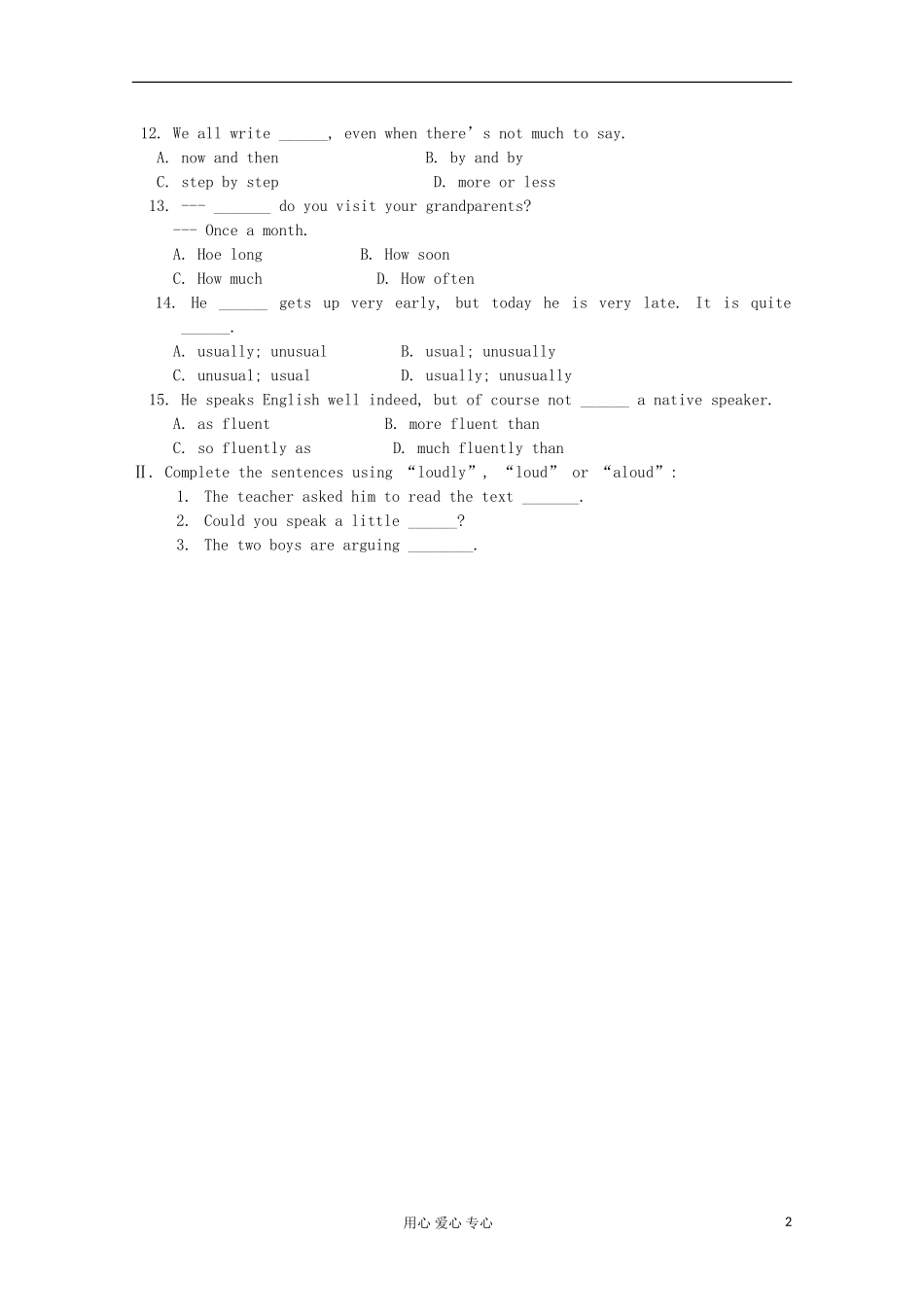Module 6 Films and TV ProgrammesLearning Paper3 GrammarLearning aims: 1. To learn the kinds of English adverbs; 2. To master the usage of English adverbs.Important and difficult points: Some special adverbs.Activity 1. Learn the Grammar on P110 in our textbook by heart.Activity 2. Practice:Ⅰ. Best choice:1. I thought she was famous, but none of my friends have _____ heard of her.A. even B. ever C. just D. never 2. There’s _________ I want to tell you. A. something new B. new something C. the something new D. the new something 3. You know _____ about it than Tom does. A. even little B. even less C. more little D. more less 4. The old gentleman has _____ been to the Great Wall before, has he? A. always B. already C. ever D. not 5. They have produced ________ they did last year. A. twice more grain as B. twice as much grain as C. twice as many grain as D. as twice many grain as 6. The teacher wondered why _____ many students had made _____ careless mistakes. A. so; so B. so; such C. such; so D. such; such 7. I’ve got _____ work to do on a ______ cold day. A. much too; much too B. too much; too much C. too much; much too D. much too; too much 8. --- Have you been to New Zealand? --- No, I’d like to, ______ . A. too B. though C. yet D. either 9. --- Do you often go to the cinema? --- No, ______ . I’ve been writing a novel this year. A. often B. frequently C. occasionally D. nearly 10. --- Where did you spend your holiday last year?--- I stayed ______ and then returned home.A. for one week in the countryside quietlyB. in the countryside quietly for one weekC. in the countryside for one week quietlyD. quietly for one week in the countryside 11. --- I was riding along the street and all of a sudden, a car cut in and knocked me down.--- You can never be _____ careful in the street.A. much B. very C. so D. too用心 爱心 专心1 12. We all write ______, even when there’s not much to say. A. now and then B. by and by C. step by step D. more or less 13. --- _______ do you visit your grandparents? --- Once a month. A. Hoe long B. How soon C. How much D. How often 14. He ______ gets up very early, but today he is very late. It is quite ______. A. usually; unusual B. usual; unusually C. unusual; usual D. usually; unusually 15. He speaks English well indeed, but of course not ______ a native speaker. A. as fluent B. more fluent than C. so fluently as D. much fluently thanⅡ. Complete the sentences using “loudly”, “loud” or “aloud”:1. The teacher asked him to read the text _______.2. Could you speak a little ______?3. The two boys are arguing ________.用心 爱心 专心2

